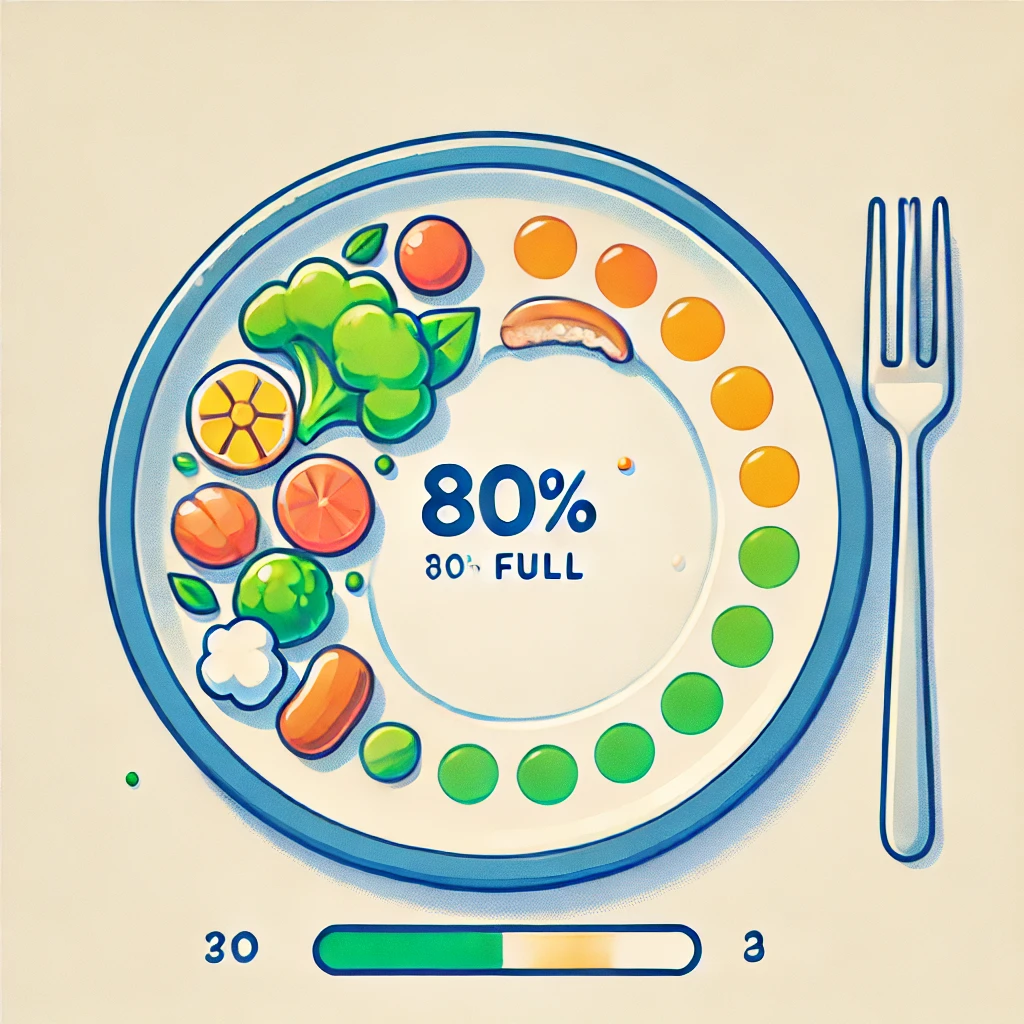Mindful Eating & Intermittent Fasting
Step-by-Step Guide
Mindful Eating Practices

Eat Until You're 80% Full
Practice mindful eating by stopping when you are 80% full, to avoid overeating and aid digestion.

Savor Each Bite
Chew your food thoroughly and savor each bite to enhance digestion and enjoy the flavors fully.

Sit Down and Focus
Sit down at the table and eat without distractions like TV or mobile phones to be fully present during meals.

Take Smaller Bites
Take smaller bites to better savor the flavor and make digestion easier on your body.

Maintain Good Posture
Maintain good posture while eating to aid digestion and stay focused on your meal.

Don't Talk While Eating
Focus on your food and avoid talking with your mouth full to engage fully with your meal.
Common Pitfalls to Avoid

Eating Without Hunger
Avoid eating out of boredom or habit. Eat only when you are genuinely hungry.

Eating When Angry or Stressed
Emotional eating can lead to overeating. Stay calm and centered during meals.

Overeating
Always aim to stop at 80% full to prevent discomfort and promote better digestion.

Eating Too Quickly
Eating too fast can lead to overeating. Slow down to enjoy the experience.

Working or Moving Right After Meals
Take time to rest and digest before resuming activities or work after eating.
Diet Plan
| Time | What to Eat | Image |
|---|---|---|
| Pre-Breakfast (9 AM) | Vegetable Juice or Coconut Water | Breakfast (10 AM) | Fresh Fruits | Lunch (1 PM) | Grain Meal with 3x more vegetables | Dinner (6 PM) | Salad or Soup |
What is Good for the Body and Health
Fruits, Vegetables, and Nuts
Fruits
Fresh fruits like apples, bananas, berries, and citrus are rich in vitamins and antioxidants.
Green Vegetables
Green vegetables such as spinach, kale, and broccoli are excellent for digestion and overall health.
Nuts
Nuts like almonds, walnuts, and cashews are great sources of healthy fats and protein.
Benefits of Intermittent Fasting
Weight Loss
Intermittent fasting can help you shed excess weight by limiting your calorie intake during the fasting periods.
Prevents Diabetes
Fasting can lower insulin resistance, reducing the risk of type 2 diabetes and improving overall metabolic health.
Heart Health
Fasting may help reduce bad cholesterol and improve heart health by promoting healthier eating patterns.
Fights Inflammation
Fasting has been shown to reduce inflammation markers, potentially reducing the risk of chronic diseases.
Increases Longevity
Studies suggest intermittent fasting may increase lifespan by promoting cellular repair and healthy aging.
Boosts Immunity
Fasting can support a healthier immune system by reducing inflammation and enhancing immune responses.